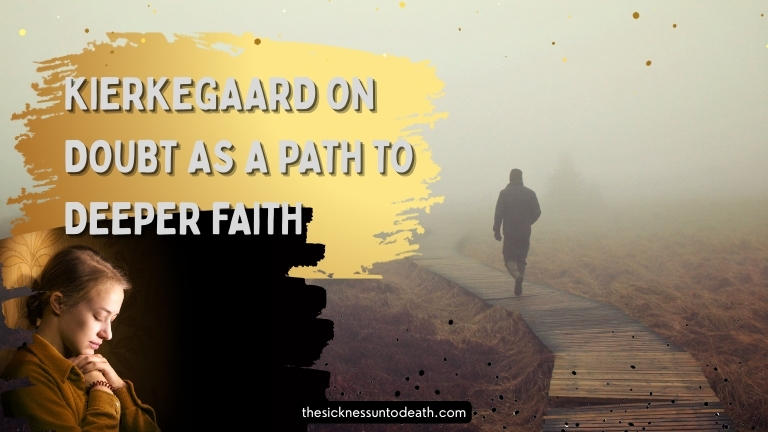Why questioning your beliefs might be the first step to truly living them.
In many religious circles, doubt is treated with suspicion — as if questioning one’s beliefs is a threat to faith itself. But Søren Kierkegaard, the father of Christian existentialism, saw things differently. For him, doubt was not a failure of belief — it was a vital part of becoming a believer in the first place.
Far from weakening faith, Kierkegaard argued that wrestling with doubt could purify it — stripping away superficial answers and leading the individual into a deeper, more honest relationship with the divine.
Doubt as a Sign of Life
In The Sickness Unto Death, Kierkegaard addresses despair as a spiritual sickness — a disconnection between the self and its eternal grounding in God. Doubt, in this context, is not a symptom of that sickness, but often the beginning of its cure.
To doubt is to care. It is the soul’s way of resisting easy answers and confronting the deeper questions that lie beneath surface-level belief. Rather than condemning doubt, Kierkegaard welcomes it as the trembling honesty that often precedes authentic faith.
The Leap of Faith Is Not Blind
Kierkegaard is often misunderstood as promoting “blind faith,” but nothing could be further from the truth. The “leap of faith” he describes is not a reckless jump into the unknown — it is a passionate, inward decision made in spite of doubt. Real faith, he insists, does not begin with certainty, but with risk.
This risk is what makes faith real. If belief is never questioned, it remains shallow — inherited, assumed, or convenient. But when belief is forged in the fire of doubt, it becomes truly one’s own.
Doubt in the Age of Deconstruction
Today, many people — especially young adults — are walking away from inherited religious frameworks. The rise of deconstruction, spiritual trauma, and institutional mistrust has led to widespread disillusionment with organised faith.
But Kierkegaard’s insights remind us that doubt need not lead to cynicism. It can lead to transformation. If we are brave enough to let go of easy answers, we may discover a deeper truth waiting beyond them — not in spite of doubt, but through it.
From Questioning to Commitment
Kierkegaard believed that faith is not static; it is a dynamic, lived relationship that grows and deepens over time. And like any meaningful relationship, it must withstand silence, confusion, even heartbreak. The questions we ask in doubt are not threats to God — they are invitations to go further.
To doubt is to seek. And to seek, Kierkegaard insists, is already to be in movement towards faith.
💡 If you’re navigating doubt and longing for a more grounded faith, Kierkegaard’s words may meet you right where you are. Don’t forget to check out The Sickness Unto Death: A Modern Translation for the 21st Century

